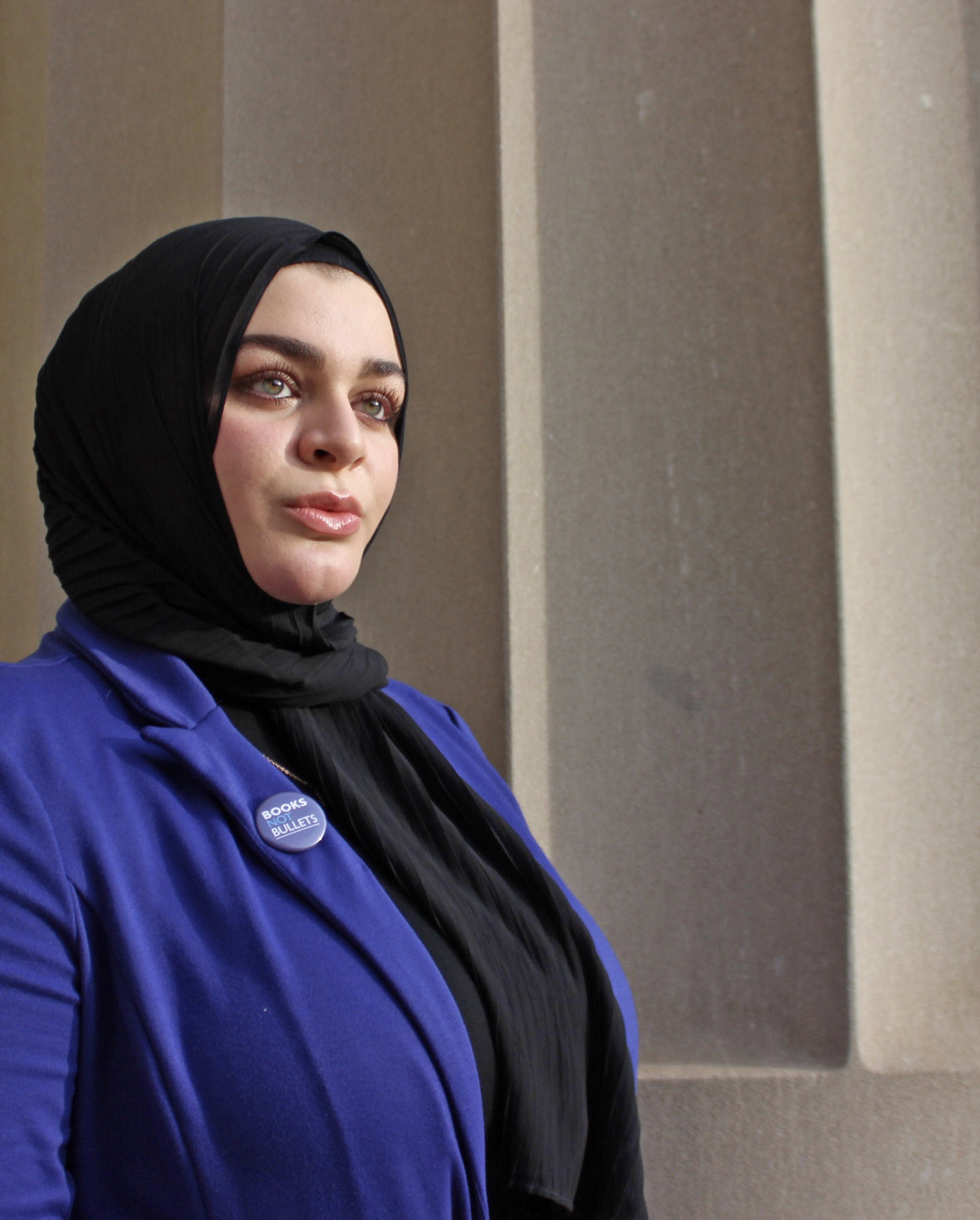
Wishes for the future: How would you imagine your environment needing to be for you to feel that you don’t have to do DEI work anymore?
As history continues to demonstrate, the best indicator of the future is the past. Though slavery was abolished in 1865, black communities continue to disproportionately face challenges their White counterparts do not. Though Western powers invaded Iraq and exited in 2011, the Iraqi people are still living in war-torn poverty. Though indigenous peoples were granted United States citizenship in 1924, they still must continue to fight for the preservation of their land and culture. To simply say that I will stop fighting for DEI when every single injustice from police brutality to the illegal occupation of Palestine is eradicated, while true, is not enough. Instead, my work seeks to actively interrogate modern systems of oppression at their source, so that they do not have the power to manifest themselves in the future. It’s a matter of understanding that liberation is not a product of baby steps which work within the bounds of an oppressive system, but rather, radical systemic change which includes the abolition of the police state, elimination of privatized healthcare, free education, etc. Until the time comes that every single marginalized community can no longer be considered marginalized, I will fight with them with every breath that I take.
Zaynab Omar Ibn Al-Khattab Elkolaly
3rd Year Undergraduate Student, Nuclear Engineering (Political Science Minor)
College of Engineering
Being your best DEI self: Think of a time when you were at your best at advancing diversity, equity, and inclusion. What happened? Who was there? Why did you feel at your best?
While I believe that DEI is a continuous effort that cannot be defined by a particular moment, an instance that stands out to me in my personal reflections is from November 2019, where I and other members of the Sunrise Movement hosted a youth-led sit-in of 40 people at congresswoman Debbie Dingell’s office. We refused to leave until she signed the Green New Deal (a government initiative which calls for drastic reduction of fossil fuel emissions and a livable wage for workers) and pledged to refuse fossil fuel money in her campaigns. This was organized after ten months of attempting to communicate with her, but our efforts were in vain, so we decided that, given how critical climate change legislation is, we needed to implement more radical measures. Unfortunately, she refused to speak with us, so I and three others decided to stay overnight, hoping she would get our message. Instead, the following day, about ten police officers were sent to arrest four college students. We were removed from the premises in handcuffs, and in that moment I realized that despite the fact that we were going to jail, I had never been prouder of us as political organizers, as youth, and as people. Climate change isn’t simply about rising sea levels and melting glaciers, but rather, it directly feeds into the racial injustice propagated by the United States military-industrial complex both domestically and internationally. When Black, Indigenous lives are at stake by the hands of the government and large corporations, civic disobedience – literally putting our bodies on the line for this cause – is not only valid, but necessary. I’ve started task forces, served on government commissions, and led protests of thousands of people, but the willingness to aggravate and challenge the racist police state is what I think ultimately embodies Dr. King’s message.
What does it mean to you to be a recipient of the MLK Spirit Awards?
As Dr. King famously said, “one has a moral responsibility to disobey unjust laws.” Unfortunately, many people, including our university administration, choose to ignore this component of his message, skewing it into one of incrementalism and centrism, propagating “peace” as an excuse to silence the cries of marginalized communities. Aside from positively representing Arab, Muslim women, I personally hold no interest in receiving awards, as awards have historically been given to those who work within the boundaries of an oppressive system, and those who deign to actually propagate systemic change are almost always awarded posthumously, if at all. It’s commonly forgotten that the civil rights movement which we hold in such high regard nowadays was actually illegal, and efforts to similarly challenge the law today result in arrests, blacklisting, and in the University of Michigan’s case, lawsuits against striking union workers. Rather than personal recognition, the greatest award would be for the University of Michigan to actively acknowledge the role it plays in upholding systemic oppression, to administer reparations to those whom it has harmed, and to understand the hypocrisy of presenting an award in MLK’s name when had he been alive today, would have been met with opposition.
